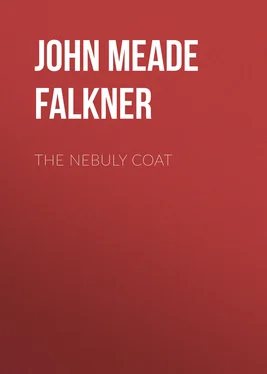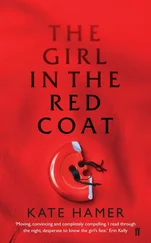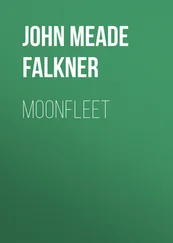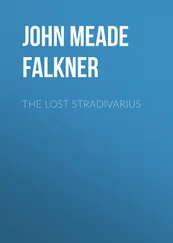John Meade Falkner - The Nebuly Coat
Здесь есть возможность читать онлайн «John Meade Falkner - The Nebuly Coat» — ознакомительный отрывок электронной книги совершенно бесплатно, а после прочтения отрывка купить полную версию. В некоторых случаях можно слушать аудио, скачать через торрент в формате fb2 и присутствует краткое содержание. Жанр: foreign_antique, foreign_home, architecture_book, на английском языке. Описание произведения, (предисловие) а так же отзывы посетителей доступны на портале библиотеки ЛибКат.
- Название:The Nebuly Coat
- Автор:
- Жанр:
- Год:неизвестен
- ISBN:нет данных
- Рейтинг книги:3 / 5. Голосов: 1
-
Избранное:Добавить в избранное
- Отзывы:
-
Ваша оценка:
- 60
- 1
- 2
- 3
- 4
- 5
The Nebuly Coat: краткое содержание, описание и аннотация
Предлагаем к чтению аннотацию, описание, краткое содержание или предисловие (зависит от того, что написал сам автор книги «The Nebuly Coat»). Если вы не нашли необходимую информацию о книге — напишите в комментариях, мы постараемся отыскать её.
The Nebuly Coat — читать онлайн ознакомительный отрывок
Ниже представлен текст книги, разбитый по страницам. Система сохранения места последней прочитанной страницы, позволяет с удобством читать онлайн бесплатно книгу «The Nebuly Coat», без необходимости каждый раз заново искать на чём Вы остановились. Поставьте закладку, и сможете в любой момент перейти на страницу, на которой закончили чтение.
Интервал:
Закладка:
“I don’t know why you call him young,” said the doctor. “He’s young, maybe, compared to his grandfather, who died at eighty-five; but he must be forty, if he’s a day.”
“Oh, impossible; and yet I don’t know. It was in my first year at Cullerne that his father and mother were drowned. You remember that, Mr Sharnall—when the Corisande upset in Pallion Bay?”
“Ay, I mind that well enough,” struck in the clerk; “and I mind their being married, becos’ we wor ringing of the bells, when old Mason Parmiter run into the church, and says: ‘Do’ant-’ee, boys—do’ant-’ee ring ’em any more. These yere old tower’ll never stand it. I see him rock,’ he says, ‘and the dust a-running out of the cracks like rain.’ So out we come, and glad enough to stop it, too, because there wos a feast down in the meadows by the London Road, and drinks and dancing, and we wanted to be there. That were two-and-forty years ago come Lady Day, and there was some shook their heads, and said we never ought to have stopped the ring, for a broken peal broke life or happiness. But what was we to do?”
“Did they strengthen the tower afterwards?” Westray asked. “Do you find any excessive motion when the peal is rung now?”
“Lor’ bless you, sir; them bells was never rung for thirty years afore that, and wouldn’t a been rung then, only Tom Leech, he says: ‘The ropes is there, boys; let’s have a ring out of these yere tower. He ain’t been rung for thirty year. None on us don’t recollect the last time he was rung, and if ’er were weak then, ’ers had plenty of time to get strong again, and there’ll be half a crown a man for ringing of a peal.’ So up we got to it, till old Parmiter come in to stop us. And you take my word for it, they never have been rung since. There’s only that rope there”—and he pointed to a bell-rope that came down from the lantern far above, and was fastened back against the wall—“wot we tolls the bell with for service, and that ain’t the big bell neither.”
“Did Sir George Farquhar know all this?” Westray asked the Rector.
“No, sir; Sir George did not know it,” said the Rector, with some tartness in his voice, “because it was not material that he should know it; and Sir George’s time, when he was here, was taken up with more pressing matters. I never heard this old wife’s tale myself till the present moment, and although it is true that we do not ring the bells, this is on account of the supposed weakness of the cage in which they swing, and has nothing whatever to do with the tower itself. You may take my word for that. ‘Sir George,’ I said, when Sir George asked me—‘Sir George, I have been here forty years, and if you will agree not to ask for your fees till my tower tumbles down, why, I shall be very glad.’ Ha, ha, ha! how Sir George enjoyed that joke! Ha, ha, ha!”
Westray turned away with a firm resolve to report to headquarters the story of the interrupted peal, and to make an early examination of the tower on his own behalf.
The clerk was nettled that the Rector should treat his story with such scant respect, but he saw that the others were listening with interest, and he went on:
“Well, ’taint for I to say the old tower’s a-going to fall, and I hope Sir Jarge won’t ever live to larf the wrong side o’ his mouth; but stopping of a ring never brought luck with it yet, and it brought no luck to my lord. First he lost his dear son and his son’s wife in Cullerne Bay, and I remember as if ’twas yesterday how we grappled for ’em all night, and found their bodies lying close together on the sand in three fathoms, when the tide set inshore in the morning. And then he fell out wi’ my lady, and she never spoke to him again—no, not to the day of her death. They lived at Fording—that’s the great hall over there,” he said to Westray, jerking his thumb towards the east—“for twenty years in separate wings, like you mi’d say each in a house to themselves. And then he fell out wi’ Mr Fynes, his grandson, and turned him out of house and lands, though he couldn’t leave them anywhere else when he died. ’Tis Mr Fynes as is the young lord now, and half his life he’s bin a wandrer in foreign parts, and isn’t come home yet. Maybe he never will come back. It’s like enough he’s got killed out there, or he’d be tied to answer parson’s letters. Wouldn’t he, Mr Sharnall?” he said, turning abruptly to the organist with a wink, which was meant to retaliate for the slight that the Rector had put on his stories.
“Come, come; we’ve had enough of these tales,” said the Rector. “Your listeners are getting tired.”
“The man’s in love with his own voice,” he added in a lower tone, as he took Westray by the arm; “when he’s once set off there’s no stopping him. There are still a good many points which Sir George and I discussed, and on which I shall hope to give you our conclusions; but we shall have to finish our inspection to-morrow, for this talkative fellow has sadly interrupted us. It is a great pity the light is failing so fast just now; there is some good painted glass in this end window of the transept.”
Westray looked up and saw the great window at the end of the transept shimmering with a dull lustre; light only in comparison with the shadows that were falling inside the church. It was an insertion of Perpendicular date, reaching from wall to wall, and almost from floor to roof. Its vast breadth, parcelled out into eleven lights, and the infinite division of the stonework in the head, impressed the imagination; while mullions and tracery stood out in such inky contrast against the daylight yet lingering outside, that the architect read the scheme of subarcuation and the tracery as easily as if he had been studying a plan. Sundown had brought no gleam to lift the pall of the dying day, but the monotonous grey of the sky was still sufficiently light to enable a practised eye to make out that the head of the window was filled with a broken medley of ancient glass, where translucent blues and yellows and reds mingled like the harmony of an old patchwork quilt. Of the lower divisions of the window, those at the sides had no colour to clothe their nakedness, and remained in ghostly whiteness; but the three middle lights were filled with strong browns and purples of the seventeenth century. Here and there in the rich colour were introduced medallions, representing apparently scriptural scenes, and at the top of each light, under the cusping, was a coat of arms. The head of the middle division formed the centre of the whole scheme, and seemed to represent a shield of silver-white crossed by waving sea-green bars. Westray’s attention was attracted by the unusual colouring, and by the transparency of the glass, which shone as with some innate radiance where all was dim. He turned almost unconsciously to ask whose arms were thus represented, but the Rector had left him for a minute, and he heard an irritating “Ha, ha, ha!” at some distance down the nave, that convinced him that the story of Sir George Farquhar and the postponed fees was being retold in the dusk to a new victim.
Someone, however, had evidently read the architect’s thoughts, for a sharp voice said:
“That is the coat of the Blandamers—barry nebuly of six, argent and vert.” It was the organist who stood near him in the deepening shadows. “I forgot that such jargon probably conveys no meaning to you, and, indeed, I know no heraldry myself excepting only this one coat of arms, and sometimes wish,” he said with a sigh, “that I knew nothing of that either. There have been queer tales told of that shield, and maybe there are queerer yet to be told. It has been stamped for good or evil on this church, and on this town, for centuries, and every tavern loafer will talk to you about the ‘nebuly coat’ as if it was a thing he wore. You will be familiar enough with it before you have been a week at Cullerne.”
Читать дальшеИнтервал:
Закладка:
Похожие книги на «The Nebuly Coat»
Представляем Вашему вниманию похожие книги на «The Nebuly Coat» списком для выбора. Мы отобрали схожую по названию и смыслу литературу в надежде предоставить читателям больше вариантов отыскать новые, интересные, ещё непрочитанные произведения.
Обсуждение, отзывы о книге «The Nebuly Coat» и просто собственные мнения читателей. Оставьте ваши комментарии, напишите, что Вы думаете о произведении, его смысле или главных героях. Укажите что конкретно понравилось, а что нет, и почему Вы так считаете.











